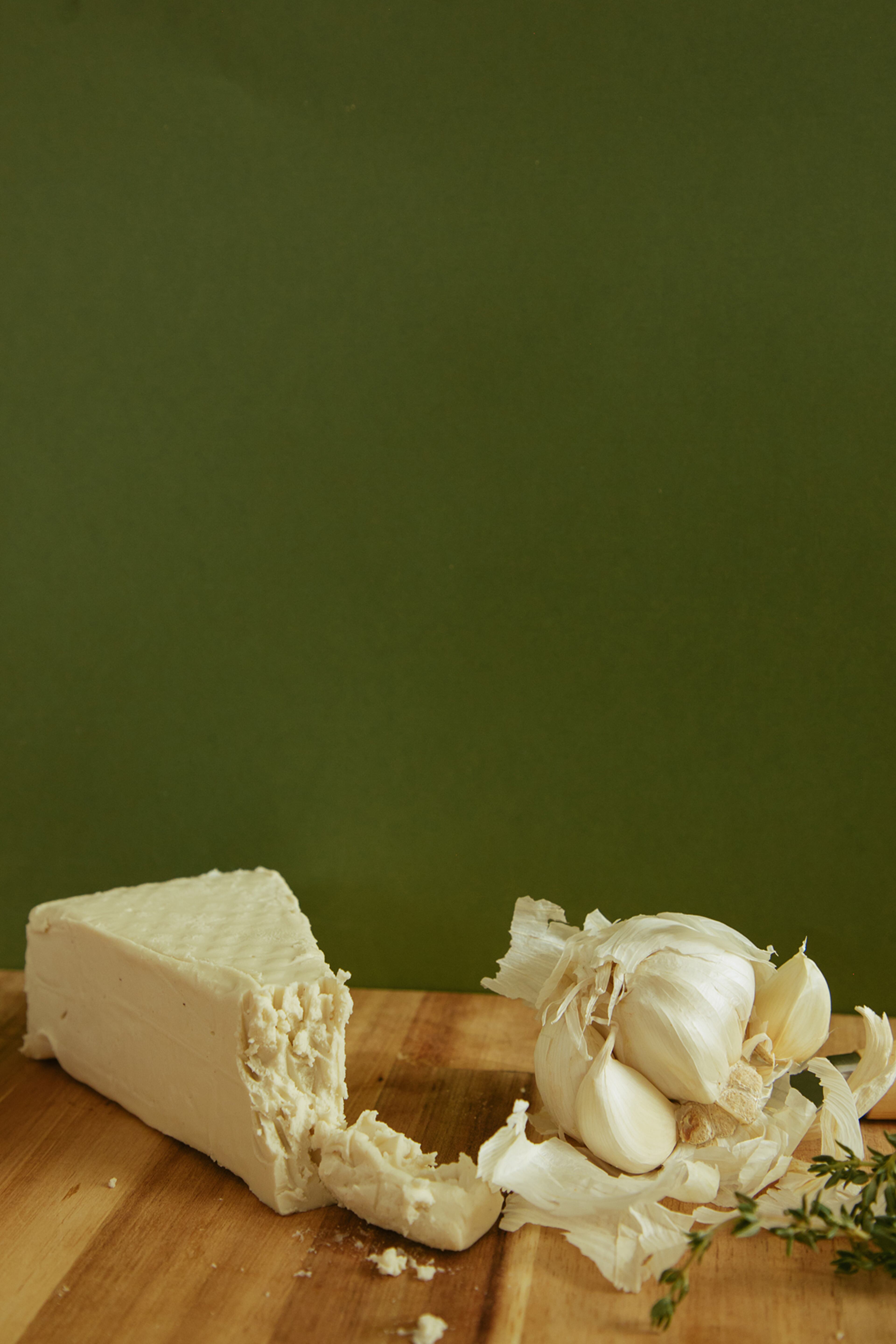Southern vegan cheese company dares to be different

Editor’s note: The Atlanta Journal-Constitution is expanding its food and dining coverage beyond greater Atlanta to encompass Georgia and other states in the Southeast. Watch the print edition of the AJC and AJC.com for more stories about the people, places and products that make this region’s food culture so vibrant. Let us know what you think about our expanded coverage. Email Food and Dining Editor Ligaya Figueras: ligaya.figueras@ajc.com.
Gwendolyn Dare Hageman, founder of Asheville-based Darë Vegan Cheese, ironically became interested in vegan cooking while working at a barbecue restaurant.
“I had a vegan employee that I loved making specials for,” she said. “That was where the challenge started.”
That led to her operating a vegan cafe at Warren Wilson College in Swannanoa, North Carolina. At the cafe, Hageman often heard people say they never could be fully vegan because of how much they loved cheese. Meanwhile, Hageman tolerated the disappointing vegan cheeses that her sister made her try at home.
“She would always bring me cheeses that she was stoked about, and I would have to feign excitement,” Hageman said.
Darë was born out of a trifecta of Hageman’s desire for a good vegan cheese to eat; her awareness that this was a product people wanted; and the welcoming, craft-minded food scene in Asheville, North Carolina.

Before Hageman even started experimenting with the creation of vegan cheese, she came up with the cheeky company name (Darë is a nod to Hageman’s middle name, but it’s also pronounced “dairy”). She also designed the logo, which features a cashew plant. “The only thing I knew was that I wanted to use cashews,” she said.
Many vegan cheese products are just “starches and oils put together and called cheese,” Hageman said. It annoyed her that people were calling their products cheese without going through the cheese-making process. “I knew that microbes had to be involved,” she said.
When she started her company, Hageman pored over the few vegan cheese-making books that were available. Through extensive experimentation, she cultivated a coconut milk yogurt culture that she now uses to create all Darë cheeses. When the cashew base (a simple blend of cashews, water and salt) is exposed to the yogurt culture, microbes break down the cashew’s macronutrients — fats, proteins and carbohydrates — to create the texture and flavor change that results in Darë cheese.
“I listened to the way the microbes talked to me, essentially, giving them what they need to create the end product,” she said.
After friends and family had lauded her cheeses, Hageman set up at a farmers market in Asheville in 2019. The reception was enthusiastic and Darë landed its first wholesale account within a month.
“I truly feel that the majority of this business has been serendipitous as heck,” Hageman said. “It’s the universe being like, ‘Yeah, yeah, yeah, keep doing this.’”
Hageman said the pandemic contributed to the growth of her company because it changed people’s approach to food, allowing more time and energy to experiment with plant-based products and diets. “People had time to listen to the way that their body was reacting to foods,” she said.

The past several years have seen impressive artisan innovation in the plant-based product industry, particularly cheeses. Hageman cited Miyoko’s Creamery, a California-based vegan butter and cheese producer, as the model for this growth, calling founder Miyoko Schinner “one of the mothers of vegan cheeses.”
Hageman said she has seen the plant-based market “take a bit of a dip” more recently, and she attributed this, in part, to the increase in lab-created foods. “The experimentation of the market went in a way that was not natural anymore,” she said. “Lab-created … isn’t plant-based. It’s not derived from the earth. It’s not derived from plants. It’s man-made.”
Hageman said clean ingredients are a company value that her customers can taste. “Leaning into whole, plant-based ingredients makes for a better product. It’s just more approachable.”
Darë started in a small, shared kitchen in the basement of a local restaurant, but Hageman recently expanded, moving the operation into a 6,000-square-foot warehouse in the nearby town of Weaverville. She shares the facility with two other women who own businesses. “It’s me extending the same kind of scary opportunity to someone else,” she said. “Here’s the space. You can do it; I did it.”
The Darë product line includes several plant-based wedges, in such flavors as roasted garlic (the company’s original recipe), balsamic fig and horseradish dill. Darë also sells spreads and dips, such as spicy queso and smoked pimento, and full cheesecakes, as well as individual servings.
Darë recently expanded beyond cheese production with a monthly subscription box called the Alternative Milkman, which features plant-based milk, butter, sour cream, yogurt, parmesan and whipped feta. The company also is experimenting with aged cheeses, such as blue and Camembert, as well as a cottage cheese.
Darë products start at $10 and can be found in stores across the country, including several Whole Foods Markets. The full range of products, including the Alternative Milkman subscription ($120), also can be ordered at darevegancheese.com.
Sign up for the AJC Food and Dining Newsletter
Read more stories like this by liking Atlanta Restaurant Scene on Facebook, following @ATLDiningNews on Twitter and @ajcdining on Instagram.

